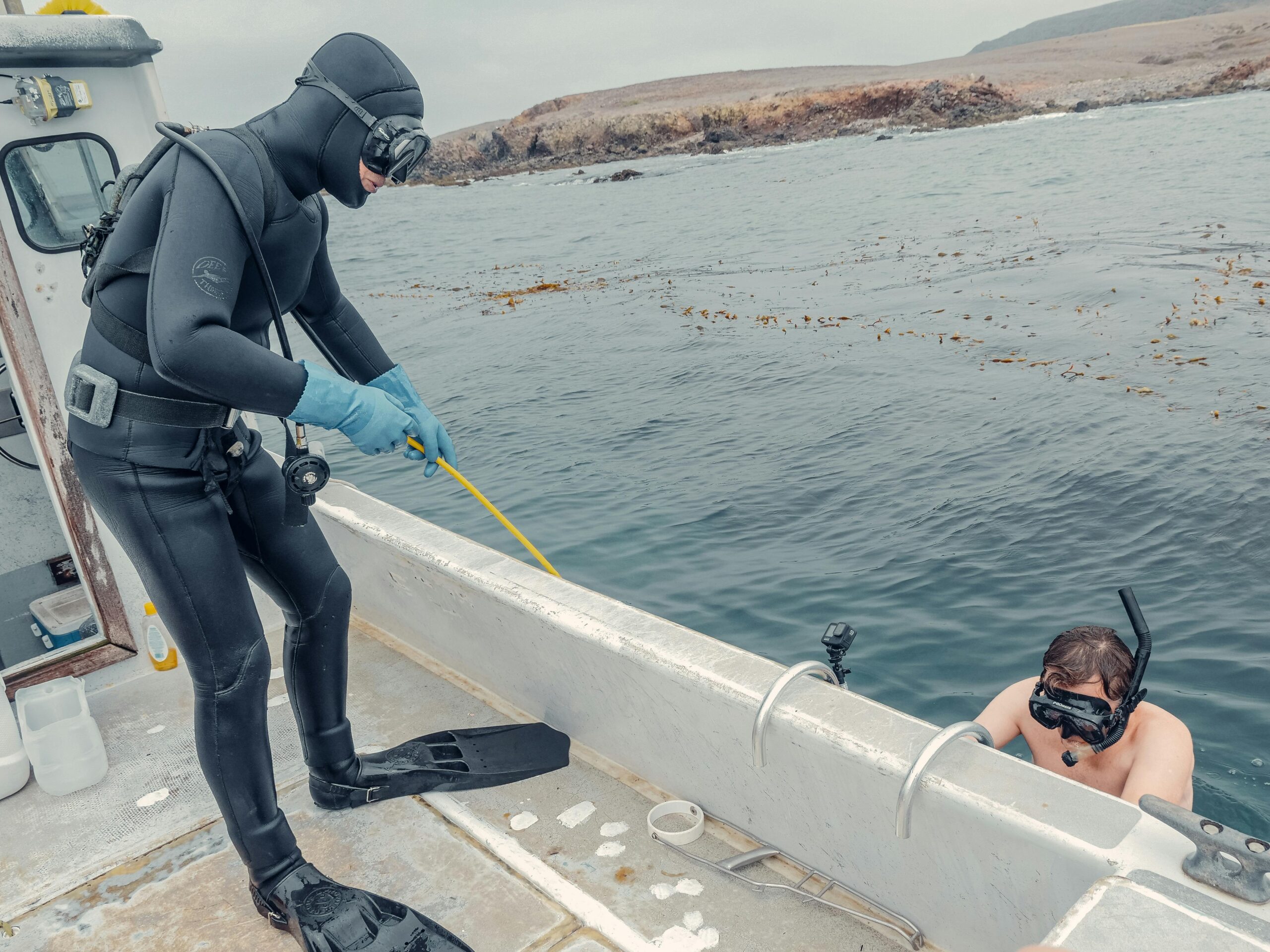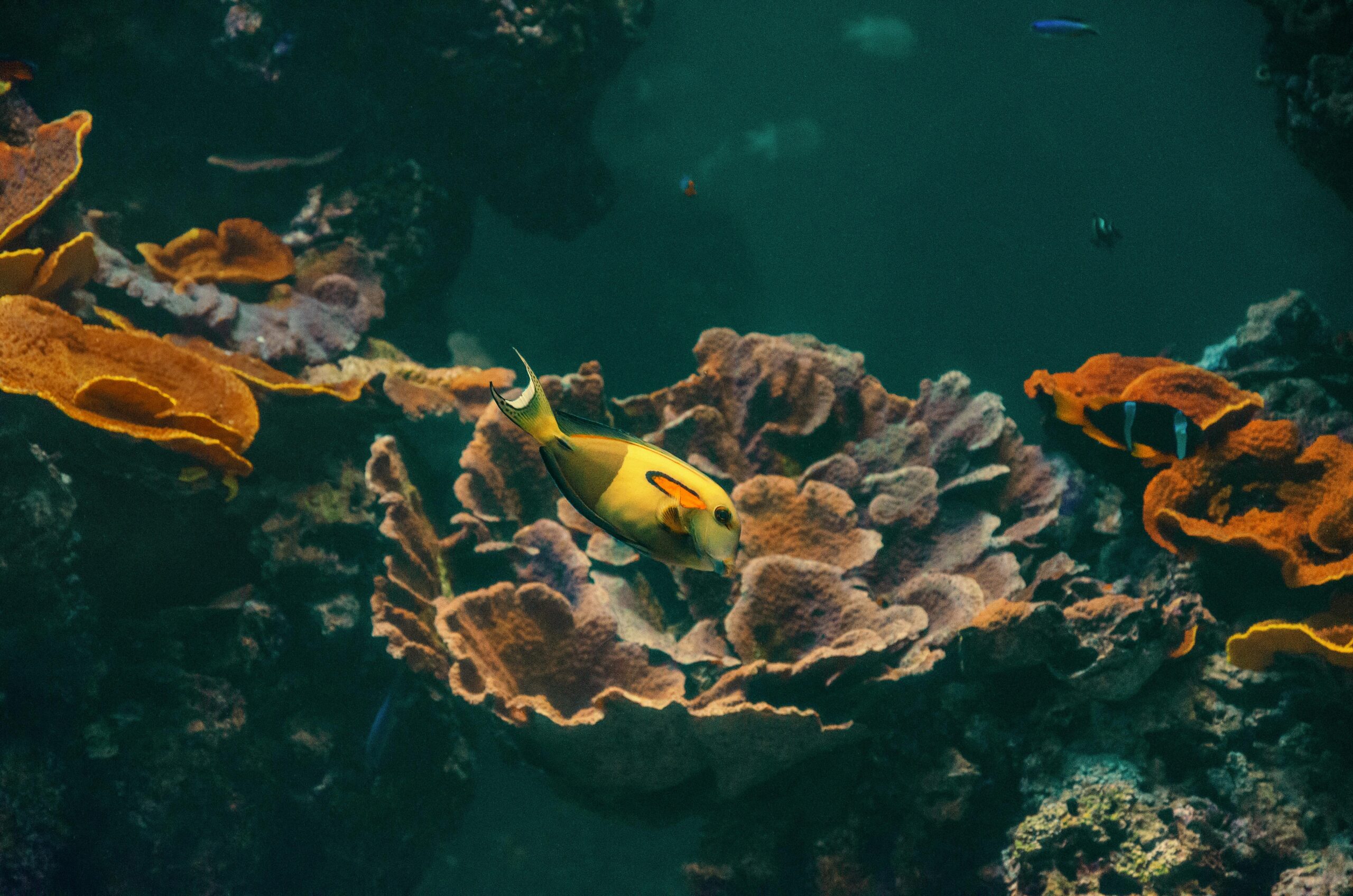Climate-resilient fishing policies are revolutionizing ocean management, combining scientific innovation with traditional knowledge to protect marine ecosystems while sustaining global food security.
🌊 The Urgent Call for Ocean Protection in a Changing Climate
Our oceans are facing unprecedented challenges. Rising temperatures, acidification, and extreme weather events are transforming marine ecosystems at an alarming rate. Fish populations are migrating to cooler waters, spawning patterns are shifting, and entire food webs are being disrupted. These changes threaten not only marine biodiversity but also the livelihoods of over 800 million people worldwide who depend on fishing for income and sustenance.
Climate-resilient fishing policies represent a paradigm shift in how we manage our ocean resources. Rather than continuing business-as-usual approaches that have led to overfishing and ecosystem degradation, these innovative strategies acknowledge the dynamic nature of climate change and build adaptive capacity into fisheries management systems.
The stakes couldn’t be higher. Fish provide 3.3 billion people with almost 20% of their animal protein intake, and the fishing industry generates billions of dollars in economic activity annually. Without climate-smart policies, we risk losing these critical resources and pushing vulnerable coastal communities into deeper poverty.
Understanding Climate Impacts on Marine Ecosystems
Before diving into policy solutions, it’s essential to understand exactly how climate change is affecting our oceans. The warming of ocean waters is perhaps the most visible impact, with global sea surface temperatures rising approximately 0.13°C per decade since the early 20th century. This warming drives fish species toward the poles at an average rate of 70 kilometers per decade.
Ocean acidification presents another critical challenge. As atmospheric CO2 levels increase, oceans absorb roughly 30% of this carbon dioxide, leading to chemical changes that reduce pH levels. This acidification particularly affects shellfish and coral reefs, which struggle to build and maintain their calcium carbonate structures in more acidic conditions.
Cascading Effects Throughout the Food Web
Climate change doesn’t impact species in isolation. When one species migrates or declines, it creates ripple effects throughout entire ecosystems. Predator-prey relationships shift, competition for resources intensifies, and traditional fishing grounds may become less productive or completely unviable.
Oxygen depletion in warming waters compounds these challenges. Fish require dissolved oxygen to survive, and warmer water holds less oxygen while simultaneously increasing fish metabolic rates. This creates “squeeze zones” where fish populations become concentrated in smaller areas with adequate oxygen levels, making them more vulnerable to overfishing.
🎣 Core Principles of Climate-Resilient Fishing Policies
Effective climate-resilient fishing policies share several fundamental principles that distinguish them from traditional fisheries management approaches. These principles provide the framework for building adaptive, sustainable systems capable of withstanding environmental uncertainty.
Adaptive Management and Dynamic Governance
Unlike rigid quota systems based on historical data, climate-resilient policies embrace adaptive management. This approach recognizes that ocean conditions are constantly changing and requires management strategies that can be adjusted rapidly based on real-time monitoring and scientific assessment.
Dynamic governance structures enable decision-makers to respond quickly to shifting conditions. This might include seasonal adjustments to fishing zones, flexible harvest limits that respond to stock assessments, or temporary closures when environmental stressors reach critical thresholds.
Ecosystem-Based Management
Modern fishing policies must look beyond single-species management to consider entire ecosystems. This holistic approach accounts for species interactions, habitat dependencies, and the cumulative impacts of multiple stressors including climate change, pollution, and fishing pressure.
By managing ecosystems rather than individual stocks, policies can better protect the complex relationships that maintain ocean health. This includes protecting critical habitats like mangroves and seagrass beds that serve as nurseries for juvenile fish and carbon sinks that help mitigate climate change.
Innovative Policy Tools Driving Ocean Resilience
Governments and regional fisheries management organizations worldwide are implementing creative policy tools designed specifically to address climate-related challenges. These mechanisms provide the flexibility and responsiveness needed in an era of rapid environmental change.
Marine Protected Areas and Dynamic Ocean Management
Marine Protected Areas (MPAs) have long been recognized as powerful conservation tools, but climate change requires rethinking their design and implementation. Static MPAs with fixed boundaries may become less effective as species distributions shift. Climate-smart MPA networks incorporate climate refugia—areas expected to remain relatively stable despite warming trends.
Dynamic ocean management takes this concept further by using real-time data from satellites, sensors, and fishing vessels to create temporary protection zones. These mobile MPAs can follow migrating species, protect spawning aggregations wherever they occur, or close areas experiencing environmental stress.
Rights-Based Fishing and Community Empowerment
Secure fishing rights provide fishers with long-term stakes in resource sustainability, incentivizing conservation and adaptive practices. Community-based management systems, particularly in small-scale fisheries, tap into traditional ecological knowledge while empowering local stakeholders to implement climate-adaptive strategies tailored to their specific circumstances.
These approaches recognize that fishing communities are often the first to observe environmental changes and possess invaluable knowledge about local conditions. By giving these communities a formal role in management decisions, policies become more responsive and culturally appropriate.
🌡️ Technology and Data: The Backbone of Adaptive Policies
Climate-resilient fishing policies depend heavily on robust data collection and cutting-edge technology. Monitoring systems must track both ocean conditions and fish populations in near real-time to enable responsive management decisions.
Satellite technology now provides unprecedented insights into ocean temperatures, chlorophyll concentrations, and productivity patterns. These data help predict where fish populations will move and identify areas experiencing environmental stress. Electronic monitoring systems on fishing vessels provide accurate catch data without requiring expensive human observers on every boat.
Artificial Intelligence and Predictive Modeling
Machine learning algorithms are revolutionizing our ability to predict climate impacts and model policy outcomes. These tools can process vast amounts of oceanographic, biological, and fisheries data to forecast species distributions under different climate scenarios, helping managers plan proactive rather than reactive interventions.
Predictive models also help assess policy effectiveness before implementation, allowing decision-makers to test different management scenarios virtually and choose approaches most likely to achieve conservation and livelihood objectives simultaneously.
Success Stories: Climate Policies Making Waves
While challenges remain significant, numerous examples demonstrate that well-designed climate-resilient policies can deliver positive outcomes for both oceans and people. These success stories provide blueprints for broader implementation.
Iceland’s Flexible Quota System
Iceland has pioneered a quota management system that adjusts harvest limits annually based on comprehensive stock assessments that incorporate environmental conditions. This adaptive approach has helped maintain healthy cod populations despite warming waters that have altered the species’ distribution and productivity.
The system’s flexibility allows fishers to operate profitably while ensuring catches remain sustainable even as climate conditions fluctuate. Iceland’s experience demonstrates that economic prosperity and environmental protection aren’t mutually exclusive when policies are designed with adaptation in mind.
Coral Triangle Initiative: Regional Cooperation
Six countries in Southeast Asia formed the Coral Triangle Initiative to coordinate climate-resilient management across their shared marine ecosystems. This regional approach recognizes that fish don’t respect political boundaries, and effective management requires international cooperation.
The initiative combines marine spatial planning, ecosystem-based management, and climate adaptation strategies while supporting the livelihoods of millions of small-scale fishers. By pooling resources and sharing knowledge, participating nations are building resilience more effectively than any could alone.
💡 Integrating Traditional Knowledge with Modern Science
Indigenous and local fishing communities have observed and adapted to environmental changes for generations. This traditional ecological knowledge represents an invaluable resource for designing climate-resilient policies that might otherwise overlook critical insights.
Effective policies create formal mechanisms for incorporating traditional knowledge alongside scientific data. This integration enriches our understanding of long-term environmental trends, validates observations from monitoring systems, and ensures management strategies respect cultural practices and local contexts.
In many Pacific Island nations, traditional marine tenure systems and fishing calendars based on lunar cycles and seasonal patterns are being combined with modern stock assessments and climate projections. This blending of knowledge systems creates more robust and culturally appropriate management approaches.
Addressing the Economic Dimensions of Transition
Implementing climate-resilient fishing policies requires acknowledging and addressing economic challenges faced by fishing communities. Transitioning to new management systems, adopting different fishing practices, or shifting target species can impose short-term costs even when long-term benefits are clear.
Successful policy frameworks include economic support mechanisms such as transition assistance, gear buyback programs, livelihood diversification initiatives, and access to microfinance. These safety nets help ensure that the burden of adaptation doesn’t fall disproportionately on vulnerable communities least responsible for climate change.
Blue Economy Opportunities
Climate-resilient policies can also unlock new economic opportunities through sustainable aquaculture, ecotourism, carbon credit programs for coastal ecosystem restoration, and value-added processing that generates more income from smaller catches. Progressive policies view these alternatives not as consolation prizes but as components of diversified, resilient coastal economies.
🔄 Overcoming Implementation Challenges
Despite their promise, climate-resilient fishing policies face significant implementation barriers. Political will often wavers when short-term economic concerns clash with long-term sustainability objectives. Institutional capacity may be insufficient, particularly in developing nations where resources for monitoring and enforcement are limited.
Illegal, unreported, and unregulated (IUU) fishing undermines even the best-designed policies. Climate-resilient management requires strengthening enforcement through improved surveillance technology, regional cooperation to track vessels across jurisdictions, and closing port loopholes that allow illegally caught fish to enter markets.
Building Stakeholder Buy-In
Policy success depends on stakeholder support, particularly from fishing communities who must ultimately implement changes. Transparent decision-making processes, meaningful consultation, and demonstrable benefits are essential for building trust and compliance.
Education and capacity building help stakeholders understand climate risks and the rationale behind adaptive policies. When fishers understand how policy changes protect their long-term livelihoods rather than simply restricting their activities, compliance improves dramatically.
The Path Forward: Scaling Climate-Smart Ocean Governance
The transition to climate-resilient fishing policies must accelerate to keep pace with rapidly changing ocean conditions. This requires political commitment, adequate financing, institutional reform, and continued innovation in both policy design and implementation mechanisms.
International frameworks like the United Nations Sustainable Development Goals provide targets and accountability mechanisms, while regional fisheries management organizations must incorporate climate adaptation into their mandates. National governments need to align fisheries policies with climate commitments and recognize oceans as critical climate solutions.
Increased funding for ocean science, monitoring systems, and management capacity is essential. While the costs are substantial, they pale in comparison to the economic and social costs of fisheries collapse and ecosystem degradation that would result from inaction.

🌏 A Collective Responsibility for Ocean Futures
Securing the future of our oceans through climate-resilient fishing policies is not merely an environmental imperative—it’s a matter of global food security, economic stability, and social justice. The communities most vulnerable to climate impacts are often those least responsible for causing them, making ethical action morally urgent.
Every stakeholder has a role to play. Policymakers must prioritize adaptive governance and long-term thinking over short-term political expediency. Scientists must continue advancing our understanding while communicating findings accessibly. Fishing communities must engage constructively in management processes and embrace sustainable practices. Consumers can support sustainable seafood through informed purchasing decisions.
The ocean has remarkable resilience when given the opportunity to recover. Climate-smart policies create that opportunity by reducing fishing pressure where needed, protecting critical habitats, maintaining biodiversity, and building adaptive capacity throughout marine social-ecological systems.
As we navigate the uncertain waters ahead, the principles and practices of climate-resilient fishing offer a compass pointing toward sustainable ocean futures. The innovative policies being implemented worldwide demonstrate that with creativity, commitment, and cooperation, we can secure healthy oceans and thriving fishing communities for generations to come. The question is not whether we can create resilient ocean systems, but whether we will act with sufficient urgency and scale to do so before critical tipping points are reached.
Our oceans have sustained humanity throughout our history. Now, through intelligent policy and collective action, we have the opportunity to return the favor—securing their future while they continue securing ours.
Toni Santos is a transpersonal psychology researcher and consciousness writer exploring how inner transformation, archetypal integration, and mindful relationships shape the evolution of the human spirit. Through his studies on shadow work, emotional alchemy, and self-realization, Toni examines how awareness becomes the bridge between psychology and spirituality in the path of awakening. Passionate about the convergence of inner science and contemplative practice, Toni focuses on how ancient wisdom and modern psychology can coexist to support healing, purpose, and expanded consciousness. His work highlights the balance between introspection, integration, and collective evolution — revealing that awakening is both personal and universal. Blending depth psychology, mythology, and consciousness studies, Toni writes about the symbolic patterns and inner journeys that define the human experience. His reflections invite readers to approach spirituality not as escape, but as embodiment — a living dialogue between the self, the shadow, and the sacred. His work is a tribute to: The transformative power of self-awareness and inner healing The union of psychology, spirituality, and archetypal wisdom The path of integration as the essence of human awakening Whether you are a seeker, therapist, or student of consciousness, Toni Santos invites you to explore the evolution of the inner world — one archetype, one realization, one awakening at a time.




